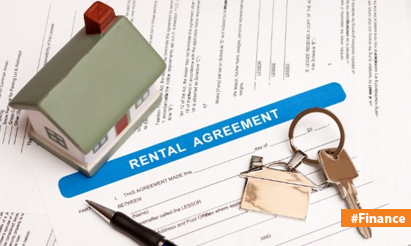Everything you need to know about rental scams and how to prevent them.
Rental scams are becoming increasingly common across the country. Unlike in the past, when a possible renter meets with a real estate agent or owner to discover a suitable housing unit, the transaction may now be simply conducted via phones and laptops. Surprisingly, technological advancements have closed the divide between the landlord and renter communities. However, scammers are taking advantage and employing novel methods to defraud victims. In most situations, the victim disregards the red indicators that distinguish a genuine individual from a fraudster.
However one case that was uncovered was in Sector 62 Noida, when a renter was cheated out of around Rs 35,000 under the guise of flat visiting expenses. Another incident occurred when a landlord was duped out of almost Rs 3.5 lakh by a scammer posing as a tenant who enticed the landlord to click a QR code.
What exactly are rental scams?
Rental or lease scams, in a nutshell, are acts in which a rental property is utilised as bait to take money from either the landlord or potential renters. The Unified Payments Interface (UPI) and wallet transactions are the principal modes of transaction. Because UPI is directly linked to the victim’s bank account, the risks are significantly larger. Scammers typically target persons who are not tech-savvy, such as older folks, and create a feeling of urgency while carrying out such scams.
What is the common strategy of rental scammers?
Rental scams follow a similar pattern to how each scamming trend has its own working process. The first step in comprehending the mode of operation is identifying the players in this activity—the landlords and potential renters. Scammers attempt to take advantage of both sides equally.
When a landlord is duped
Scammers typically act as army officers, high government workers, or defence personnel in the case of a landlord. They want jobs that are aspirational, transferable, and instil a feeling of respect in the general public. When contacting the landlord, the scammer usually cites an urgent need to obtain a rental house owing to an unexpected transfer. They mostly interact with homeowners who have larger apartments and persuade them to move in with their family members the next month. They are also prepared to pay the monthly rental and security deposit in upfront, regardless of how much it is.
A checklist for detecting rental fraud
While it is tough to identify the red flags of a discussion that may be a possible rental scam, here are some difficult-to-ignore common ties that are commonly seen in rental frauds:
- The landlord avoids physical inspection of the property, or a fraudster acting as a renter refuses to visit the property before signing the lease.
- Scammers attempt to complete the procedure quickly, leaving no time for the other side to ponder or reflect. They express strong interest in the transaction and make vocal assertions.
- They are uninterested in paperwork. From the start, there is an almost obsessive urge to rely on internet transactions.
- While defrauding a landlord, the fraudster expresses an interest in paying the agreed-upon deposit sum. However, if they either pay nothing or request that you click on certain links, this might be a red indicator.
How can you protect yourself against rental scams?
When we hear about rental scams in the media, we often assume that we have been smart and have not fallen into a similar trap. However, it is critical to remember that fraudsters frequently upskill, and this may happen to even the brightest of people. As a result, when engaging in a rental transaction, you must keep specific considerations in mind and exercise caution-
- Always satisfy the individual with whom you are conversing in person. Before making any decisions, go to the property and meet the owner in person.
- Do not engage on any links or pay any money unless you have met the owner and lease agreements have been signed or are in the process of being signed.
- Take the time to read the rental agreement and any property documentation. You might also have them reviewed by a legal professional.
Disclaimer: The views expressed above are for informational purposes only based on industry reports and related news stories. PropertyPistol does not guarantee the accuracy, completeness, or reliability of the information and shall not be held responsible for any action taken based on the published information.




